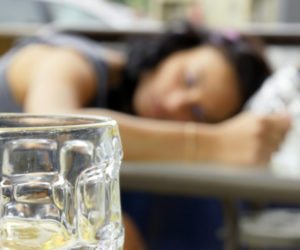College Binge Drinking Facts

College binge drinking facts and statistics every parent should know
Understanding the facts about college binge drinking can help students in making safer choices during their college experience. Binge drinking is one of the foremost concerns on college campuses today. In the past year alone, dozens of universities have introduced stricter rules on alcohol, particularly at fraternities, in an attempt to reduce binge drinking and incidents fueled by alcohol abuse. But there is still a strong sub-culture on many college campuses where heavy or binge drinking is considered acceptable and is actively encouraged. Many parents may not be aware of how serious a problem the binge-drinking epidemic is on college campuses, but there are certain college binge drinking facts that every parent of a collegiate student should know.
To help parents understand the scope of the problem that binge drinking poses to college students, we’ve compiled college drinking statistics from various reputable sources. These sources include the World Health Organization, The National Institute on Alcohol Abuse and Alcoholism (NIAAA), and the 2014 National Survey on Drug Use and Health (NSDUH) conducted by The Substance Abuse and Mental Health Services Administration (SAMHSA), among others.
What is binge drinking?
The National Institute on Alcohol Abuse and Alcoholism (NIAAA) defines binge drinking as “a pattern of drinking alcohol that brings blood alcohol concentration (BAV) to .08 grams percent or above.” This typically occurs after women have had 4 drinks and men have had 5 drinks in the space of about 2 hours.
According to The Substance Abuse and Mental Health Services Administration (SAMHSA), which conducts the annual National Survey on Drug Use and Health (NSDUH), binge drinking is defined as drinking 5 or more alcoholic drinks on the same occasion on at least 1 day in the past 30 days.
How widespread is binge drinking on college campuses?
In 2014, 37.9 percent of college students ages 18–22 engaged in binge drinking (5 or more drinks on an occasion) in the past month compared with 33.5 percent of other persons of the same age.
2 percent of college students ages 18–22 engaged in heavy drinking, which is defined as drinking 5 or more drinks on an occasion, 5 or more times a month, in the past month compared with 9.5 percent of other persons of the same age.
What are the consequences of college binge drinking?
Some of the most troubling college drinking facts have to do with the affects that binge drinking can have on student safety. Binge drinking can lead to blackouts, passing out, and incidents of alcohol poisoning, which can be fatal. During a blackout, affected individuals often act in ways they ordinarily would not, and they generally wake without any memory of what they did or said. This heavily inebriated state puts students at an increased risk of being the aggressors or victims of sexual assault and violence. Researchers estimate that every year, the following numbers of college students between the ages of 18 and 24 face the consequences of college binge drinking:
- 1,825 die from unintentional, alcohol-related injuries (including motor-vehicle crashes)
- 696,000 are assaulted by another student who has been drinking
- 97,000 students report experiencing alcohol-related sexual assault or date rape
- Approximately 20% of college students meet the criteria for an AUD (alcohol use disorder), which is a medical condition diagnosed by a doctor when a patient’s drinking causes distress or harm
How does binge drinking affect college students’ academic performance?
A single incidence of binge drinking can diminish a person’s ability to perform abstract thought for as long as 30 days.
Around 1 in 4 college students report academic consequences from drinking. These consequences include falling behind in class, missing class, poor performance on exams or papers, and earning lower grades overall.
If you or a loved one needs help with abuse and/or treatment, please call the WhiteSands Treatment at (877) 855-3470. Our addiction specialists can assess your recovery needs and help you get the addiction treatment that provides the best chance for your long-term recovery.
